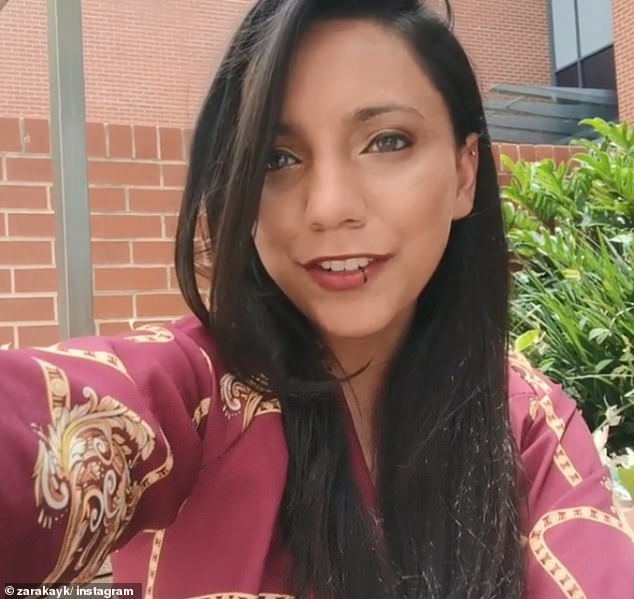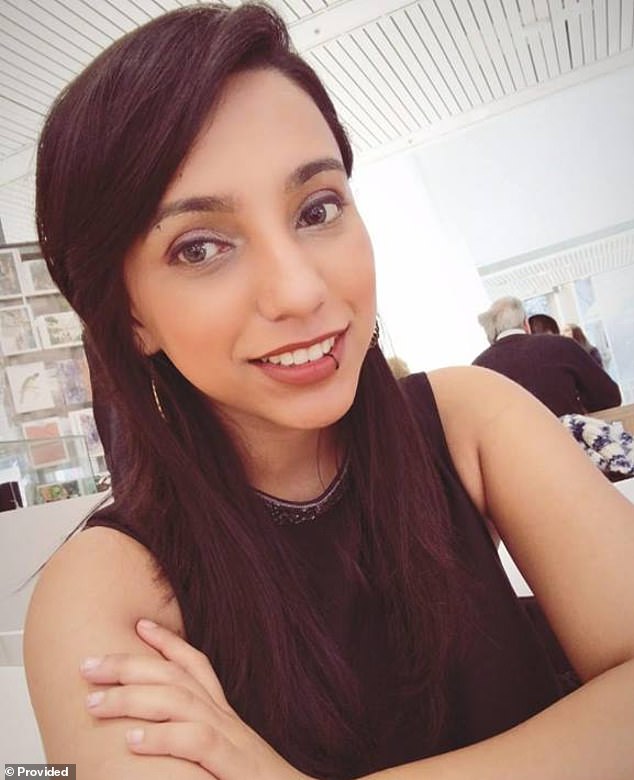- Beranda
- Komunitas
- News
- Berita Luar Negeri
'I was called a S E N S O R for taking off my hijab'
TS
Hans.Landa
'I was called a S E N S O R for taking off my hijab'



Quote:
A former international student who renounced Islam has revealed she receives death threats for leaving the religion and says hundreds of other women are living in fear.
Zara Kay, who moved to Melbourne in 2012 to continue studying information technology and engineering, renounced her Muslim faith after realising the religion she was raised with was, in her opinion, anti-women and anti-gay.
The 26-year-old Tanzanian-raised founder of the Faithless Hijabi support group said there were hundreds of ex-Muslims in Australia, who live in fear of being ostacised, abused or even killed.
'Apostasy is punishable by death in 13 countries. It's either Islam or death,' she told her Instagram followers on Sunday.
Ms Kay, who now lives in Sydney, has stepped up her campaign to support people like herself, after Saudi teenager Rahaf Mohammed al-Qunun was granted asylum in Canada, after fleeing to Thailand fearing her family would murder her for leaving Islam.
Ms Kay began wearing the hijab when she was an eight-year-old girl growing up in Tanzania, in east Africa, as a Shia Muslim.
She removed the religious garment as an 18-year-old student at Monash University Malaysia, near Kuala Lumpur, after realising it was no longer a representation of who she was.
'The first time I took off my headscarf and posted a photo, I was abused,' she told Daily Mail Australia on Monday.
'I was told I was a sl**. I was called names for just not wearing the headscarf.
'It was just my hair and I was told that if I get raped, it's my fault because I don't wear a headscarf.'
Her journey towards renouncing Islam continued in Melbourne, where she continued studying at Monash University.
The former international student, who last year became an Australian citizen, is now an outspoken critic of Islam and Sharia law, as described in the Quran.
'To me, hijab is a form of patriarchy and oppression. And that doesn't mean that every woman I see with a hijab is oppressed, it just means the covering itself is a symbol of oppression,' she said.
'It's clearly mentioned about wife beating in the book. It is a sin for a wife to say no to a husband when asked to have sex unless she's got her period.
'Sharia law talks about how women need to be covered and there are some many laws, they don't fit in this day and age.'
Last year, in western Sydney, Sunni fundamentalist preacher Nassim Abdi, from the Saudi-funded Ahlus Sunnah Wal Jamaah Association said it was a sin for women to refuse to have sex with their husband.
Ms Kay left Islam after non-Muslims pointed out the religion was incompatible with her modern values.
'I rejected a lot of Islamic values such as the punishment of gay people, inequality between genders and forced hijab,' she said.
Fundamentalist Muslims also regard apostasy, or leaving Islam, as a sin deserving of death.
Daily Mail Australia in 2017 filmed Uthman Badar, the Australian spokesman for Islamist group Hizb ut-Tahrir, declaring ex-Muslims deserved to be killed.
Some Islamic countries, like Pakistan, also have the death penalty for criticising Islam.
As an ex-Muslim living in Sydney, Ms Kay gets death threats from Muslims on social media who regard apostasy, or renouncing Islam, as a sin worthy of death.
'Ex-Muslims are scared to talk about it,' she said.
'A lot of the politicians haven't even addressed our rights.
'They're scared of offending religious feelings.'
Ms Kay slammed the term Islamophobia, arguing it was used to silence people like her who had renounced Islam.
'It put us in a position where we're unable to share our experiences,' she said.
'Free speech should never be suppressed, especially with minorities because it enables people to attack those minorities.
'Ex-Muslims should continue to speak out and normalise conversations about their experiences and their thoughts about Islam.
'We're letting Islam have too much control over what we can and can't say.'
She argued political correctness had overshadowed discussion about ex-Muslims receiving death threats.
'There are things people can deal with in a mature way, having conversations and if that results in somebody's feelings being hurt well guess what? I get death threats,' she said.

Ms Kay slammed the term Islamophobia, arguing it was used to silence people like her who had renounced Islam
'My life is at risk. I get cyber bullied and you're talking about religious feelings.'
When she first renounced Islam, her school friends blocked her on social media and declared she deserved to be killed.
'I had my childhood friends who said that I should be killed for having views that didn't align with Islam,' she said.
'It was definitely a shock. It took a mental strain.'
Unlike most ex-Muslims she has encountered, Ms Kay remains in contact with her family, and has support from a minority of Muslim friends who accept she is now an atheist.
'I work with a lot of ex-Muslim women, upon leaving Islam or even whilst still being Muslim, are subjected to emotional, physical and mental abuse by their families for rejecting any Islamic values,' she said.
'Their lives are panned out for them. You're either a Muslim or dead according to Sharia law.
'A lot of this is prevalent in the Middle East or other theocratic countries but it's not unheard of in the West with Muslim societies.'
https://www.dailymail.co.uk/news/art...Australia.html
cakep jg, lbh cakep tanpa hijab

sebelahblog memberi reputasi
4
3K
Kutip
27
Balasan
Komentar yang asik ya
Urutan
Terbaru
Terlama
Komentar yang asik ya
Komunitas Pilihan